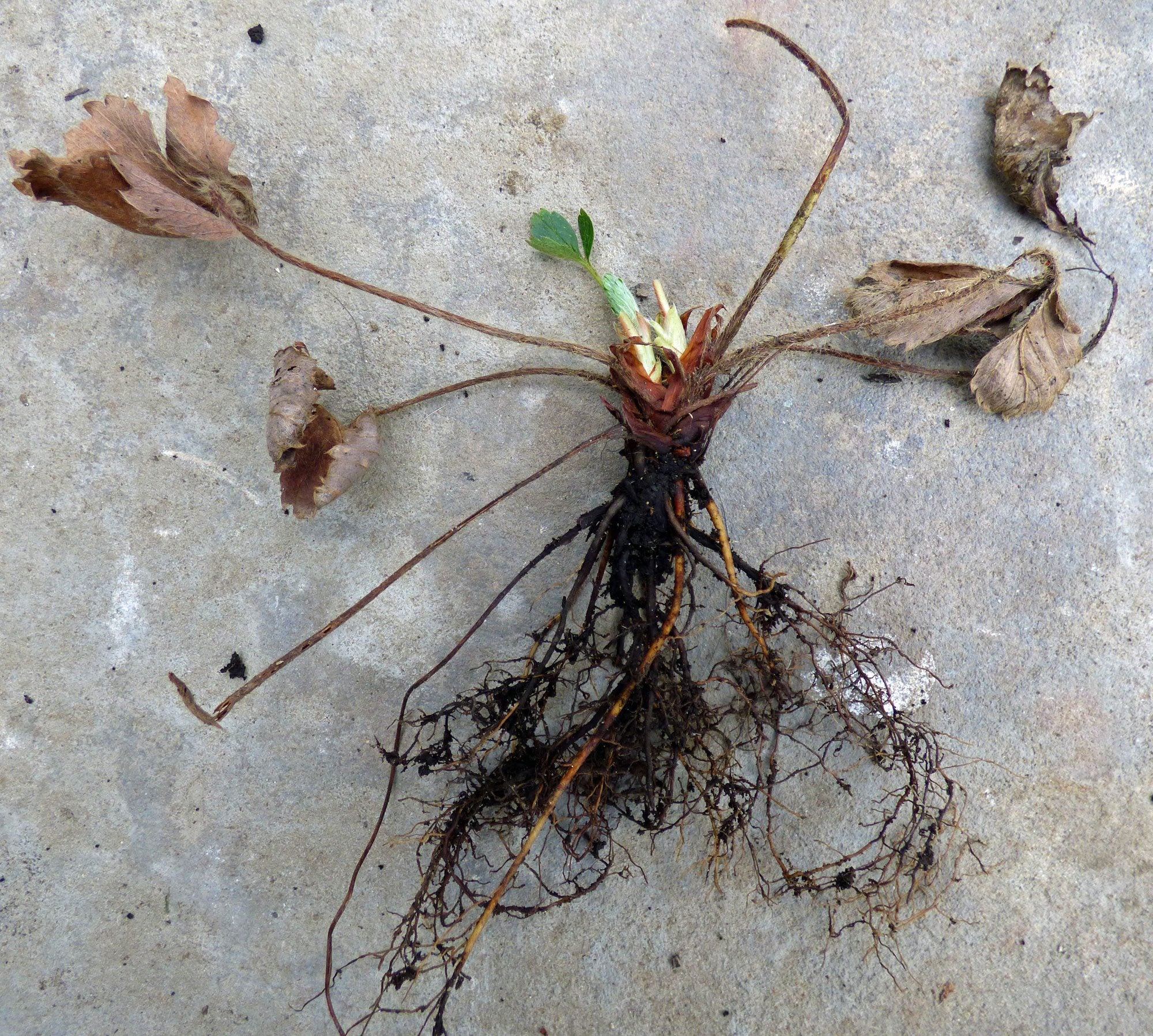
Sign up for the Gardening Know How newsletter today and receive a free copy of our e-book "How to Grow Delicious Tomatoes".
You are now subscribed
Your newsletter sign-up was successful
Nothing heralds summer's onset like a crop of fresh strawberries. If you're starting your own berry patch, it's very possible that you have purchased bare root strawberry plants. The question now is how to store and plant bare root strawberries.
What is a Bare Root Strawberry?
So exactly what is a bare root strawberry plant? Bare root strawberry plants are dormant plants that are not planted in soil. Instead, they appear as bare roots with shriveled foliage attached. Nurseries and seed catalogs most often ship out bare root plants since they are easier and less expensive to ship. Planting bare root strawberries properly is the key to ensuring that they wake from their dormant state and begin berry production as soon as possible. It isn't always easy to tell if the plant is alive and healthy, but there are some hints that can clue you into the welfare of the plants. First, they should not show any signs of mold or mildew and should not smell odd or rotten. Second, the berry plants should be free from damage with foliage intact and heavy, not light, dried out root systems.
Planting Bare Root Strawberries
Plan on planting the bare root berries outside after all danger of frost has passed in your region. June bearing varieties should be planted in early spring once the soil has thawed. Prepare a full sun, well-draining garden plot with 3 inches (8 cm.) of compost dug into a 12 inch (31 cm.) depth. Also, work in 1 pound of 10-10-10 fertilizer for each 100 square feet (9.29 sq. m.) of the bed. Soak the bare root strawberry plants for 20 minutes in a bucket of water. Just soak the roots, there's no need to submerge the entire plant. This allows the roots to rehydrate and break their dormant cycle. Next, dig planting holes to the length of the roots and two times as wide. Gently spread out the roots in the hole and fill in with soil, keeping the crown of the plant at soil level. Space the plants 18 inches (46 cm.) apart in rows that are 3 feet (1 m.) apart. Water in well and lay a 2 inch (5 cm.) layer of mulch around each plant to conserve water. Thereafter, irrigate the bed each week with 1 to 2 inches (2.5-5 cm.) of water. Bare root strawberry plants should begin leafing out by early summer.
Storing Bare Root Strawberries
Storing bare root strawberries is not recommended, but sometimes life throws us a curve ball and it just can't be avoided. Of primary concern when storing bare root berries is protection from cold weather. Ideally, the strawberry plants will over winter much better in the ground. If it can't be helped, however, pot them in some good quality soil and place them in the garage, root cellar, or basement to protect them from the cold -- or during warmer months, keep them cool. The plants should get some light, so you may choose to store them outside. If that's the case, be sure to keep them covered during cold snaps. Also, if you store them outside, be aware that if temps warm up, the plants may emerge from their dormancy prematurely. If a frost follows, the plants may die. Protecting the roots is also of primary concern, which is why it is paramount to cover them up. Either place the plants in potting soil, sand, or wood chips, and sawdust; anything to shield the roots and hold in moisture. Additionally, when storing bare root berries, never let the roots dry out. Keep the roots moist, not waterlogged. While bare roots are prone to drying out, overwatering will likely rot them.
Sign up for the Gardening Know How newsletter today and receive a free copy of our e-book "How to Grow Delicious Tomatoes".

Amy Grant has been gardening for 30 years and writing for 15. A professional chef and caterer, Amy's area of expertise is culinary gardening.
